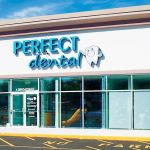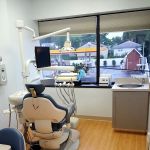How to Become a Dentist: A Step-by-Step Guide to a Rewarding Career
1. My Journey Toward Becoming a Dentist
From a young age, I was fascinated by the medical field. But it wasn’t until I had my first visit to the dentist as a teenager that I realized dentistry was the career for me. I remember sitting in the dental chair, watching the dentist work with such precision and care, and I knew then that I wanted to help people in the same way. The idea of transforming smiles, alleviating pain, and contributing to people's health became a driving force in my life.
However, becoming a dentist is not a simple journey. It requires years of education, dedication, and commitment. In this article, I’ll share with you the path I followed to become a dentist, including the necessary educational steps, key skills you need, and tips for success in this rewarding field. Whether you're just starting to think about dentistry as a career or you're already on your way, this guide will provide you with valuable insights into the process.
2. The Essential Education Requirements for Becoming a Dentist
One of the first things I learned on my journey to becoming a dentist was that the educational requirements are quite rigorous. In the United States, the path to becoming a dentist generally involves earning a bachelor’s degree, completing dental school, and obtaining licensure. Here's a breakdown of each step:
2.1. Completing a Bachelor’s Degree
The journey begins with earning a bachelor's degree, typically with a focus on science-related fields such as biology, chemistry, or physics. I initially pursued a degree in biology because it provided a strong foundation in the sciences, which is essential for dental school. While there is no specific degree required, dental schools tend to favor candidates who have completed courses in anatomy, physiology, biochemistry, and microbiology.
During my undergraduate years, I also took the opportunity to shadow local dentists, gaining firsthand insight into the profession. This experience helped solidify my decision and gave me a sense of what dental school would be like. It’s important to get involved in extracurricular activities that demonstrate leadership, communication, and a genuine interest in helping others, as these qualities are highly valued by dental schools.
2.2. Taking the Dental Admission Test (DAT)
After completing my bachelor’s degree, the next step was to prepare for and take the Dental Admission Test (DAT). The DAT is a standardized test required by most dental schools in the U.S. It covers topics such as biology, general chemistry, perceptual ability, and reading comprehension. The test can be challenging, and I spent several months preparing for it, using practice tests and study guides.
Doing well on the DAT is critical for gaining admission to dental school. I recommend starting your preparation early and taking practice exams to identify areas that need improvement. The DAT is a significant part of the application process, and your score can make a big difference in your acceptance chances.
2.3. Dental School: The Next Step
Once I was accepted into dental school, I knew that this was where the real challenge would begin. Dental school typically takes four years to complete, and it is both academically and clinically intensive. The first two years are primarily focused on classroom instruction and lab work, where you'll learn everything from dental anatomy to pharmacology. The curriculum is rigorous, and the pace can be overwhelming at times, but it’s essential to stay focused and organized.
In the final two years of dental school, you will gain clinical experience by treating patients under the supervision of licensed dentists. This hands-on training is invaluable, as it helps you apply what you've learned in a real-world setting. The clinical portion of dental school is where you begin to refine your skills and develop the confidence needed to practice independently.
3. Licensure and Specialization: The Path to Becoming a Certified Dentist
Upon graduating from dental school, I had to obtain a license to practice dentistry. In the U.S., dental licensure requirements vary by state, but typically, it involves passing two major exams: the National Board Dental Examination (NBDE) and a clinical exam. The NBDE tests your knowledge of dental science, while the clinical exam assesses your practical skills and ability to treat patients.
After passing these exams, I was officially licensed to practice dentistry. However, many dentists, including myself, choose to pursue further specialization in areas such as orthodontics, periodontics, or oral surgery. Specializing requires additional years of training, which can be both rewarding and challenging. Depending on the field, the specialization process can take anywhere from two to six years.
While specialization is not required, it can provide additional opportunities and increase earning potential. For me, I decided to focus on general dentistry, but for those interested in a specific area, it’s essential to consider your interests and career goals when deciding whether to specialize.
4. The Essential Skills Every Dentist Needs
Becoming a successful dentist isn’t just about education and exams. It also requires a unique set of skills and attributes. Through my training, I developed several key skills that have been essential to my practice:
4.1. Manual Dexterity
Dentistry is a highly hands-on profession, and one of the most important skills is manual dexterity. Dentists perform intricate procedures that require precision and steady hands. I spent countless hours practicing dental procedures in school, honing my skills to ensure that I could work efficiently and accurately on patients.
4.2. Communication Skills
As a dentist, clear communication is crucial. You must be able to explain treatment options to patients, address concerns, and ensure they feel comfortable throughout the process. I learned how to communicate effectively with people from all walks of life, and I quickly realized that making patients feel at ease was just as important as the technical work itself.
4.3. Problem-Solving and Critical Thinking
Dentistry is not just about routine procedures—it also involves solving complex problems. Each patient’s case is unique, and as a dentist, you need to assess the situation and develop a treatment plan that best addresses their needs. I often find myself thinking critically, considering multiple factors before deciding on the best course of action.
5. The Challenges and Rewards of Being a Dentist
While the path to becoming a dentist is long and demanding, the rewards are well worth the effort. I find immense satisfaction in helping patients achieve better oral health, whether it’s through routine cleanings or more complex procedures like root canals or crowns. The ability to improve someone's smile and alleviate pain is incredibly fulfilling.
That said, dentistry also comes with its challenges. The long hours, physical strain, and emotional toll of dealing with patients who may be anxious or in pain can be demanding. Additionally, running your own practice or managing a team requires business acumen and the ability to juggle administrative tasks alongside patient care.
However, the ability to make a real difference in people’s lives keeps me motivated. Seeing patients leave the office with healthier, happier smiles is one of the most rewarding aspects of this career.
6. Continuing Education: Staying Up-to-Date with Advances in Dentistry
Dentistry is a constantly evolving field. New technologies, techniques, and treatments are introduced regularly, and it’s essential to stay current. After becoming a licensed dentist, I made a commitment to lifelong learning. This includes attending dental conferences, participating in workshops, and taking continuing education courses.
Staying up-to-date with advances in dentistry not only enhances my skills but also ensures that my patients receive the best possible care. The field is incredibly dynamic, and the most successful dentists are those who embrace learning and adapt to new methods.
7. Conclusion: Starting Your Journey Toward Becoming a Dentist
If you’re considering a career in dentistry, it’s important to understand that it’s a long but incredibly rewarding journey. It requires a commitment to education, the development of key skills, and the passion to help others. My path to becoming a dentist has been challenging, but it’s also been one of the most fulfilling decisions I’ve ever made.
If you’re ready to take the first step, I encourage you to pursue your education, seek out shadowing opportunities, and talk to professionals in the field. Dentistry offers a diverse and ever-growing career that can make a real difference in people’s lives. Good luck on your journey!
For more information on pursuing a career in dentistry, check out Dentistry Toothtruth for expert advice and resources.







 Community Health Center of Snohomish County - Everett-North Clinic4.0 (960 review)
Community Health Center of Snohomish County - Everett-North Clinic4.0 (960 review) Red and Ritchey Orthodontics - Joliet5.0 (418 review)
Red and Ritchey Orthodontics - Joliet5.0 (418 review) Rockport Family Dental4.0 (191 review)
Rockport Family Dental4.0 (191 review) Perfect Dental - Methuen4.0 (678 review)
Perfect Dental - Methuen4.0 (678 review) International Dental of Joliet4.0 (93 review)
International Dental of Joliet4.0 (93 review) Le Pera Daniel DMD4.0 (72 review)
Le Pera Daniel DMD4.0 (72 review) The Importance of Oral Health Education During Pregnancy for a Healthy Pregnancy
The Importance of Oral Health Education During Pregnancy for a Healthy Pregnancy Best Tips for Brushing Your Teeth Properly for Healthy Gums: Essential Techniques for Oral Health
Best Tips for Brushing Your Teeth Properly for Healthy Gums: Essential Techniques for Oral Health Why Skipping Dental Checkups Can Lead to Bigger Oral Health Problems
Why Skipping Dental Checkups Can Lead to Bigger Oral Health Problems Advantages of Porcelain Dental Restorations
Advantages of Porcelain Dental Restorations How Can Diabetes Cause Tooth and Gum Problems? Preventing and Managing Oral Health Issues
How Can Diabetes Cause Tooth and Gum Problems? Preventing and Managing Oral Health Issues Healthy Habits for Promoting Good Oral Health and Hygiene: Tips for a Healthy Smile
Healthy Habits for Promoting Good Oral Health and Hygiene: Tips for a Healthy Smile